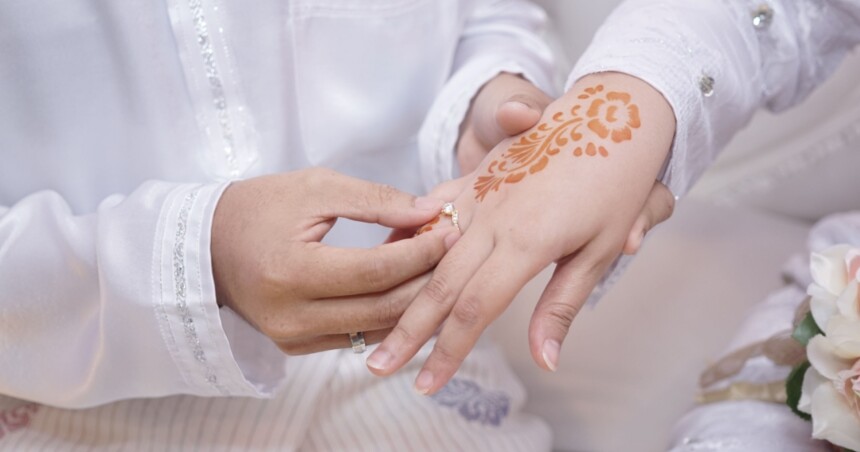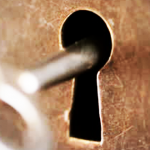Abu Hafsah AbdulMalik Clare once said in regards to marriage, that “when marriage is made difficult, premarital relations become easy.” That statement itself is a testament to the egregious problem that is persisting in modern Muslim families: the excessive emphasis on culture to acquire a perfect, ideal marriage. Young men and women of marriage age are forced to wait (either by their parents or on their own accord) until they find a perfect mate to be married to, based on superficial prerequisites such as wealth, language, ethnicity, family structures, and amount of (western) education. Such ideal marriages are often compliant with traditional values but not as much with Islamic teachings. And such indicators of a perfect soul mate have taken precedence over religion and character––complicating and delaying otherwise suitable marriages, especially of young willing men and women.
Young Muslims, especially those living in the West, are stuck between the influences of their families’ heavily regulated tradition-bound marriage trends and the liberal society that runs counter to the traditional marriage trends. On one hand, it’s the organised, culturally arranged marriages and on the other hand it is the open-relationship-based cohabitations of the society. When such contrasting influences collide, marriages become difficult for those youth who are willing to marry but yet their parents refuse to step out of the traditional trends. Often, the result is an aging unmarried young adult who is afraid to confront their parents fearing that they might not accept their choice of spouse because it does not conform to the culture-based criteria of their parents. Either the potential spouse does not fit the category of “suitable” race or language, or does not possess other ethnic “good” qualities.
One of the main reasons for such delays in marriages is the family’s unawareness of the Islamic principles that encourage marriages regardless of race, ethnicity, language and culture. Nowadays, it is common to focus on looks, family, wealth and education rather than character and religion; the exact opposite of what the following Hadith encourages:
Abu Hurayrah relates that the Prophet (peace be upon him) said: “If a suitor approaches whose religion and character please you, then let him marry. Otherwise, there will be a lot of immorality and corruption in the world.”[1]
Furthermore, when a parent rejects a choosing of their children or if parents forcefully impose their choosing of a mate (based on the utopian cultural traits) then the adverse consequences become great. The emotional and psychological impact on both parents and their children become inevitable, often resulting in domestic fights, elopement, and other sins, including made-easy-by-parents premarital activities.
There is also too much focus on what others will say instead of what God will say. This results in satisfying the desires of society rather than doing the right thing. It only satisfies the self-perception in others. This sense of paranoia increases delay in marriages because families often compete with each other in producing a better, more glamorous wedding than their peers––almost always neglecting basic Islamic marriage etiquettes of humility and sincerity. Worrying about what others (colleagues, friends, and relatives) will say or do also significantly increases psychological depression, social anxiety and regret amongst potential bachelors and bachelorettes if they think their marriage won’t satisfy the ideal social standards of marriage. This implication forces pro-marriage individuals to either abandon marriage as a whole or keep their premarital relationships continuous and hidden because parents haven’t yet found the perfect mate to conduct a glamorously expensive wedding in the best hotels with the best music.
Likewise, the influence of society, where the families live––especially in secular societies––is a great one. Often in those societies the divorce rates are considerably higher, which negatively impacts a person’s social and mental desire to move forward with marriage. And interestingly, the process of marriage is very relaxed in those societies, often to the point of even accepting same-sex marriages. But yet the Muslim’s marriage is made complicated and delayed for unjust reasons by parents. Many traditional parents have adopted a my-way-or-the-highway approach to marriage. For some, the preservation of their family name, honour and pride becomes more important than protecting their children from the grave sins of illegally-satisfied sexual desires
The traditionalist mindset thinks that marriage to someone other than the ideal ethnicity, race, language and culture is a crime as if Muslims of other races or colours are sub-humans, not suitable to marry into. Is it because of our pride thinking that our race and ethnicity is too good to be diluted through “unsuitable” marriages? Whether this discriminate attempt to preserve one’s family lineage, race, ethnicity and language is a social by-product of nationalism and colonialism or not; it is, undoubtedly, a detriment to the collective good of the Ummah, especially the youth.
[donationbanner]
Source: www.islam21c.com
Notes:
[1] [Sunan al-Tirmidhî (1084) – authenticated by al-Albânî]










Women have to be prepared to marry down or stay single for the rest of their lives. This “marry an equal” is just a fantasy. They have the career but there is a price to pay. This snobbery is only harming themselves
Another problem is that there are less men who are real men (i.e fulfilling their roles) and more women who are (directly or indirectly) taking the role of the man.
Allah mentions in Surat Al Nisa “Men are the supporters of women”, which means the man is meant to be the leaders of the household. However, today, the role of the women clashes with the role of the man and one of the reasons is because they are becoming as or more “advanced” then men.
Women today have become more advanced in education, career, wealth, status and others. It is very unlikely for a Muslim women with a masters degree to marry a man without one or a women with a high salary to marry a man with a lesser one. It is also very unlike for a women with a British passport marry someone without one or a women from the city to marry a man from the town (or a smaller tribe).
Women are always impressed by a man who is very intelligent, hardworking and visionary, however, in today’s society women are encouraged to be the same. This leads them to find it even more hard to find their “ideal” partner who will impress or attract them as what men have today is not something special or unique anymore.
There are many great benefits for a women to be educated, however I believe it is one of the main reasons why they are finding it hard to find their “right one” when they use it to compete with men or as a criteria.
I know of a divorced couple who want to get back together but can’t because the man can’t afford it.
He has a place to accommodate her and can afford to provide her with her basic needs (maybe more).
I told the woman’s sister that the Prophet ﷺ said to a man, “Marry, even with [a Mahr equal to] an iron ring.” (Al-Bukhari 5150)
You can get the cheapest cup of tea for the price of an iron ring (about US$0.07) where we live.
I then asked if he couldn’t afford to pay an equivalent of US$0.24 and she acknowledged that he could.
In the worst case scenario, I believe he can easily afford to spend several dollars (if not hundreds) to marry her.
But a divorced couple who are still in love can’t remarry because the society expects them to spend gazillions first.
I’ve seen them in compromising situations (allowed by our “conservative” society) that can lead them to zina.
A lot of people (especially those preciously married) are falling into zina because they can’t afford marriage.
Religious Muslims are also falling into zina because of traditions that seem to get worse by the day.
The #1 reason that attracts youth to Shi’ism (in my society) is mut’ah where they can get temporarily “married” (just for sex) for less than US$0.50.
May Allah help us.
‘Marriage is half of Dean (Islamic Lifestyle)’ – Hadith/ Statement of Muhammad
Brother you wrote what youth want to say nowadays to their parents and to their society.our youth are falling in sinful life and yet their parents want to preserve their family name and their so called pride which has nothing to do with Islam.too much focus on what other will say
(Fatwa: 723/507/L=1431)
In Islam no caste has any superiority on the other one at all, one who is more pious he is more beloved near Almighty Allah.
إِنَّ أَكْرَمَكُمْ عِندَ اللَّهِ أَتْقَاكُمْ الآية [الحجرات : 13]
If somebody’s deeds threw him behind then his lineage cannot bring him forth. However, in the chapter of marriage Islam has considered equality because the customs and traditions of each caste differ from others. In marrying in ones own caste there is more chance of strong relationship between spouses. In contrary to it, in marrying in other caste there is fear of spoiling of the relationship which is against the aims and objectives of marriage. That is why Ulema have briefed that if a girl marries in such a family which is of low status than her caste according to the custom then the guardians of the girl have the right to revoke the nikah before delivery. And according to another saying the nikah does not take place. Yes, if the guardians of the girl marry her in other caste happily then nikah is valid and effective. Hence having the belief that marriage in other caste is totally unlawful and innovation is not true.
Allah (Subhana Wa Ta’ala) knows Best
Darul Ifta,
Darul Uloom Deoband
http://darulifta-deoband.org/showuserview.do?function=answerView&all=en&id=21314